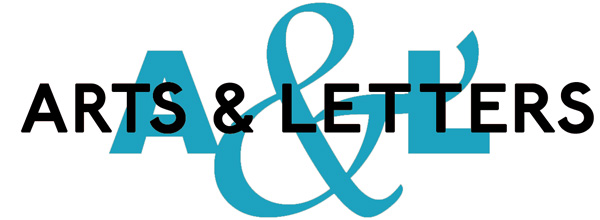The Arts & Letters staff was saddened by news of contributor Naira Kuzmich’s death two weeks ago. Naira’s short story, “Beginning Armenian,” from Issue 27 can be found here, and is also excerpted below.
Adjectives are steadfast; while the noun it’s describing may change in number, the adjective remains the same.
Illness in a family can either break or strengthen it and there was never a time that I thought we’d fall apart. My parents were, in their own ways, people of action. I kept them busy. Dad put in more hours to pay my bills, my mother worried. The summer I came home from school, after my failed dalliances in poetry and sex, I began my treatment.
Young women with breast cancer are treated aggressively. Doctors try to leave no chance for the human spirit to weaken, for it to play a part. They think that young patients aren’t as resilient, that they generally have not been tested. He recommended that I have my left breast removed. A mastectomy. The tumor clocked in at 1.96 centimeters, small enough to have a lumpectomy, a procedure that could’ve saved most of my breast tissue, but he didn’t want to risk it. Do you want to risk it, he asked. And what could I tell him—that a man had yet to touch that left breast with love, yet to stand quiet, in awe, of my body, at the foot of my bed? Of course not, I told him. Get rid of the whole thing.
Before the surgery, I told my father to buy a lot of plastic chairs, just in case, for all the mourners. Our apartment was too small and they’d have to remember me outside in the backyard, where I had first jumped rope without a bra. Months later, drunk and in the dark, I’d jump again, staring at the expanse where my left breast used to be, my vision blurring until I saw what I wanted. My mother had watched from the living room window.
The surgery went as planned, and as hoped. After a course of chemo, we can talk about reconstructive surgery, the doctor said. So I did that too, lost my hair at twenty, bought my first wig, then my second, wore chest expanders, got the implant. I was back in school two years later, finished with my treatment at twenty-two, college at twenty-four.
Looking back, I don’t want to say it was easy, but that it was merely easier than my mother thought it would be. It was easier than my mother’s long dying.
All that energy in our bodies, those magical neurons, the little synapses and nerves that shine and sparkle in recognition and memory, all of that is for the young, but for what? There wasn’t much I needed to remember.
*
The second person singular is used only among the common people.
It’s not easy to take care of someone who doesn’t know why she needs to be taken care of. At first, I only came home a weekend a month, sitting with my mother and telling her about my students, my new friends, describing the paintings I purchased in extraordinary detail. I called more often than I used to. I gave my father addresses for respectable homes that would take both of them in. He refused, as did my mother, in the beginning, when she still had choices, could still make them. She was only sixty when diagnosed. One time she left the house and came back seven hours later from God knows where. She certainly didn’t. I began coming home twice a month. My tickets were round-trips. I’d brush her graying hair—though she still had plenty of black—and I’d tell her about my cat, Lola, the time she vomited on my shoes, my favorite restaurant on Mission Street, the bum on the bus beside me who hollered, “You think your shit doesn’t smell like shit?” when I asked him to stop touching my knee. Another time, my mother knocked over a vase and walked over the glass, feet bleeding, to get to the ringing phone. It was me on the other end. More than once she attacked my father with whatever she could get her hands on—a pen, a spatula, tweezers—thinking him a stranger. I started coming home every weekend.
And it’s not like it is in the movies. There are no happy endings, because there’s no real story, because you forget to ask for one. Because you forget, too, sitting there in front of your disappearing mother, that you’re not talking just to fill the silence. You forget that you should be listening, trying to piece together everything she says, every delusion and nonsense memory. Every strange thing, you should’ve written down, you should’ve recorded every scary laugh. You should’ve tried to keep her talking even as she started crying when she lost her train of thought. You should’ve asked more questions. But sitting there in front of your disappearing mother, you were thinking this is the hardest thing I have ever done and you were thinking, dear God, haven’t I been through enough?
The only one who believed in you was your mother. The doctor was right to take your breast.
*
The colon is not a colon, but a period. It is two fistfuls of dirt, one on top of the other. It is not a permission to speak or to sing.
If there is a God, then we deserve to be in sorrow only three times in our lives: at birth, at the weddings of our children, and then the minute before our passing. While I was undergoing treatment, my mother was trying to make deals with the devil. Ten years off mine for every extra year you give her. A wrinkle around my eyes for every month you keep her alive. My breast for her breast. Mind for her body.
My mother died a million deaths.
I want to say that I died right there along with her, but that would be a lie. Soot as we say in Armenian, like dirt, absolute shit. I’m back in LA, alive and well. I’m standing in front of a classroom, teaching middle-aged women how to read and write in a language they already know. My students claim to be from the village, all twenty-eight of them. Yes, Professor Chopuryan, we speak Hayeren, but mother and father never taught us how to spell our names or read letters. Cows to milk, floors to wash, wet clothes to hang, lots to do, so much. And I want to believe them, every single one. Nazik Chatinyan with her outlandish highlights and purple eyebrows, imitation Gucci blouses. Anahit Hagopyan, beautiful and quiet, graying hair and a purse-full of tissues and pictures. Gayane Poghosyan, mother of four, chipped nails and cheap mascara. Perhaps they are all from the village, maybe not the same one, but did I not pass many while in Armenia?
I listen to these women’s stories and nod in the right places. I smile and sympathize and take them for their word. I look at their faces and tell them, Go on, I’m listening.
Tell me everything. Soots or truths.
Talk. Say anything, anything at all. *







